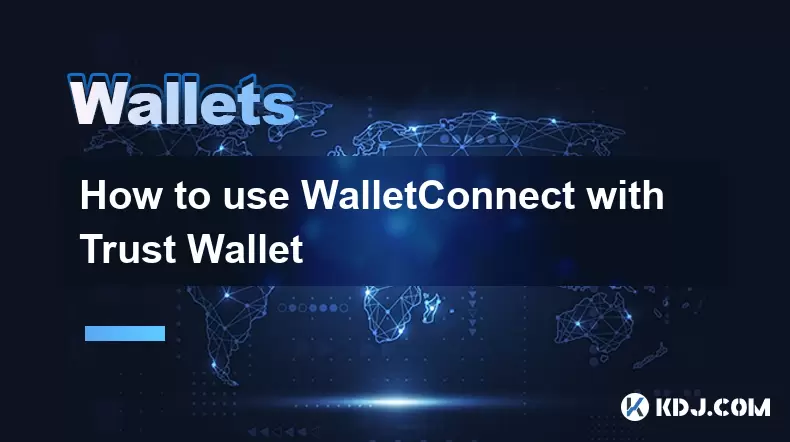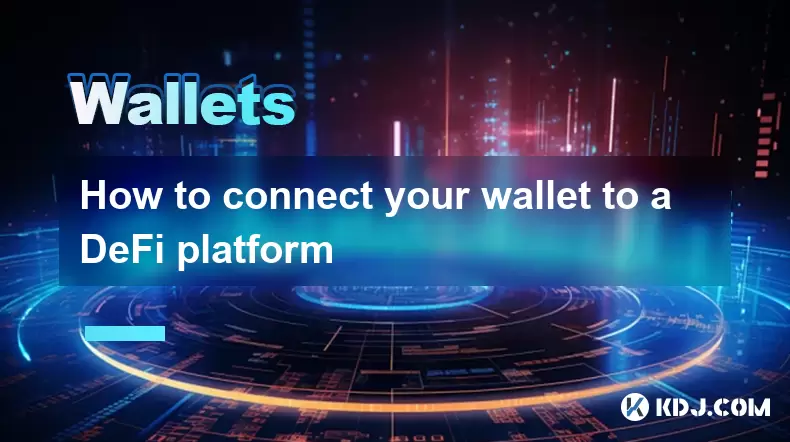-
 Bitcoin
Bitcoin $118300
0.75% -
 Ethereum
Ethereum $4544
3.21% -
 XRP
XRP $3.128
-0.31% -
 Tether USDt
Tether USDt $1.001
0.02% -
 BNB
BNB $861.4
3.94% -
 Solana
Solana $192.2
3.12% -
 USDC
USDC $1.000
0.01% -
 Dogecoin
Dogecoin $0.2332
0.92% -
 Cardano
Cardano $0.9702
6.55% -
 TRON
TRON $0.3513
-0.44% -
 Chainlink
Chainlink $24.69
14.60% -
 Hyperliquid
Hyperliquid $47.42
1.65% -
 Stellar
Stellar $0.4307
0.74% -
 Sui
Sui $3.826
3.32% -
 Bitcoin Cash
Bitcoin Cash $590.6
0.12% -
 Ethena USDe
Ethena USDe $1.001
-0.01% -
 Hedera
Hedera $0.2560
2.83% -
 Avalanche
Avalanche $24.84
4.94% -
 Litecoin
Litecoin $122.0
2.95% -
 Toncoin
Toncoin $3.493
0.20% -
 UNUS SED LEO
UNUS SED LEO $9.460
-1.09% -
 Shiba Inu
Shiba Inu $0.00001316
2.12% -
 Uniswap
Uniswap $11.19
2.94% -
 Polkadot
Polkadot $4.059
3.61% -
 Dai
Dai $1.000
0.00% -
 Bitget Token
Bitget Token $4.686
2.09% -
 Cronos
Cronos $0.1530
2.18% -
 Monero
Monero $267.4
11.83% -
 Ethena
Ethena $0.7250
0.52% -
 Pepe
Pepe $0.00001121
3.26%
How do I export my private keys from my Ledger device?
Ledger devices don't export private keys; they securely sign transactions using your keys within a protected element, preventing direct access. Attempting key extraction is dangerous and likely fraudulent; your seed phrase is for recovery, not key export.
Mar 17, 2025 at 02:30 pm

Key Points:
- Ledger devices do not directly "export" private keys in the traditional sense. The private keys are never revealed or accessible outside the secure element of the device.
- You can access and use your private keys indirectly through the device's interaction with your chosen wallet software.
- The process involves using your Ledger device with compatible software to sign transactions. This utilizes your private keys without actually exposing them.
- Incorrectly attempting to extract private keys can severely compromise your cryptocurrency security.
- Understanding the risks and limitations is crucial before attempting any key management actions.
How Do I Export My Private Keys From My Ledger Device?
The short answer is: you don't. Ledger devices are designed with robust security measures to protect your private keys. These keys are never directly accessible or exportable. The entire system is built around the principle of never revealing the private keys, ensuring the highest level of security for your crypto assets. Any claim promising direct private key export from a Ledger device is highly suspicious and likely fraudulent.
Instead of exporting private keys, you interact with your cryptocurrencies using your Ledger device in conjunction with compatible wallet software. This software communicates with your Ledger, using your private keys to sign transactions without ever revealing the keys themselves. This process is known as signing transactions offline.
Understanding Ledger's Security Model
The security of a Ledger device relies on its secure element, a physically protected chip that houses your private keys. This secure element isolates your keys from the external world, preventing malware or other attacks from accessing them. Even if your computer is compromised, your private keys remain safe within the device. This is the core difference between a hardware wallet like Ledger and software wallets, which store private keys directly on your computer or phone, making them vulnerable to various attacks.
Using Your Ledger Device for Transactions
To manage your cryptocurrencies, you'll connect your Ledger device to your computer and use compatible wallet software. When you initiate a transaction, the wallet software will communicate with your Ledger device. The device will then display the transaction details on its screen, prompting you to confirm. Once you confirm, your Ledger device uses your private keys to digitally sign the transaction, proving your ownership and authorizing the transfer. This entire process happens securely within the secure element, never exposing your private keys.
Different Wallets, Same Principle
Different cryptocurrencies and wallets require slightly different procedures, but the core principle remains the same. Whether you're using Ledger Live, a specific cryptocurrency wallet, or another compatible application, your private keys are never directly exposed. The communication between your device and the software is carefully designed to ensure the security of your keys. Always double-check the compatibility of your chosen wallet software with your Ledger device to prevent issues and maintain security.
Seed Phrase – Not Private Key Export
Your Ledger device’s seed phrase is often confused with private keys. While the seed phrase allows you to recover your wallets, it's not a direct export of your private keys. It's a master key that allows you to generate all your private keys. Treat your seed phrase with utmost care; never share it with anyone, and store it securely offline. Losing your seed phrase means losing access to your cryptocurrencies. Think of it as a backup system, not a way to obtain your private keys.
The Dangers of Phishing and Malicious Software
Be wary of any websites, emails, or software that claim to allow you to export your private keys from your Ledger device. These are almost certainly scams designed to steal your cryptocurrency. Ledger will never ask for your seed phrase or private keys. Always be vigilant about phishing attempts and only download software from official sources. Remember, your Ledger's security relies on the secure element's isolation; attempting to circumvent this puts your funds at significant risk.
Alternative Approaches and Misconceptions
Some individuals might attempt to "extract" private keys through various methods, but none of these are legitimate or safe. The secure element's design makes it exceptionally difficult, if not impossible, to extract private keys without physically damaging the device. Even if somehow successful, such attempts would likely render the device unusable. Remember, compromising your Ledger's security defeats its purpose.
Software Updates and Firmware
Regularly updating your Ledger device's firmware is essential for maintaining its security. These updates often include patches for vulnerabilities and improvements to the device's security features. Keeping your firmware up-to-date is a proactive measure to protect your assets. Always download firmware updates directly from the official Ledger website.
Frequently Asked Questions
Q: Can I access my private keys directly from my Ledger device?
A: No. Ledger devices are designed to never reveal your private keys. They are protected within the secure element.
Q: What if I lose my Ledger device?
A: If you lose your Ledger device, your cryptocurrencies are not necessarily lost. You can recover access using your seed phrase, provided you have it stored securely and offline.
Q: Is it safe to use a third-party wallet with my Ledger device?
A: Yes, as long as you are using a reputable and well-reviewed third-party wallet compatible with your Ledger device. Always be cautious and verify the wallet's legitimacy before use.
Q: What happens if my computer is compromised?
A: Your private keys remain safe within the secure element of your Ledger device, even if your computer is compromised.
Q: How can I verify the authenticity of my Ledger device?
A: Ledger provides methods to verify the authenticity of your device on their website, ensuring you are using a genuine device.
Disclaimer:info@kdj.com
The information provided is not trading advice. kdj.com does not assume any responsibility for any investments made based on the information provided in this article. Cryptocurrencies are highly volatile and it is highly recommended that you invest with caution after thorough research!
If you believe that the content used on this website infringes your copyright, please contact us immediately (info@kdj.com) and we will delete it promptly.
- Kazakhstan's Crypto Leap: Bitcoin ETF and Central Asia's Digital Finance Future
- 2025-08-13 12:45:19
- BlockDAG Presale Blazes Past $371M: Fundraising Frenzy Fuels Crypto Sensation
- 2025-08-13 13:05:21
- Meme Coins: Chasing the 2025 Surge – Which Will Moonshot?
- 2025-08-13 10:25:23
- Bitcoin's Wild Ride: Rally, Pullback, and What's Next
- 2025-08-13 10:25:23
- Bitcoin, Bitmax, and Institutional Demand: A New Era of Crypto Investment
- 2025-08-13 10:45:12
- Solana, ROAM, and Airdrops: What's the Buzz in 2025?
- 2025-08-13 11:35:13
Related knowledge

How to wrap Ethereum (wETH) in MetaMask
Aug 13,2025 at 11:36am
Understanding Wrapped Ethereum (wETH)Wrapped Ethereum (wETH) is a tokenized version of native Ethereum (ETH) that conforms to the ERC-20 standard, ena...

How to manage your portfolio in Exodus wallet
Aug 08,2025 at 10:07pm
Understanding the Exodus Wallet InterfaceThe Exodus wallet is a non-custodial cryptocurrency wallet that supports a wide range of digital assets. When...

How to manage your portfolio in Exodus wallet
Aug 13,2025 at 11:35am
Understanding the Exodus Wallet InterfaceThe Exodus wallet is a non-custodial cryptocurrency wallet that supports a wide range of digital assets. Upon...

How to reset your MetaMask password
Aug 08,2025 at 01:28pm
Understanding the MetaMask Password Reset ProcessMany users confuse the MetaMask password with the seed phrase or private key, but they serve differen...

How to use WalletConnect with Trust Wallet
Aug 13,2025 at 01:07am
What Is WalletConnect and Why It Matters for Trust Wallet UsersWalletConnect is an open-source protocol that enables secure communication between dece...

How to connect your wallet to a DeFi platform
Aug 13,2025 at 11:36am
Understanding Wallet Compatibility with DeFi PlatformsBefore connecting your wallet to any DeFi platform, it's essential to ensure your wallet is comp...

How to wrap Ethereum (wETH) in MetaMask
Aug 13,2025 at 11:36am
Understanding Wrapped Ethereum (wETH)Wrapped Ethereum (wETH) is a tokenized version of native Ethereum (ETH) that conforms to the ERC-20 standard, ena...

How to manage your portfolio in Exodus wallet
Aug 08,2025 at 10:07pm
Understanding the Exodus Wallet InterfaceThe Exodus wallet is a non-custodial cryptocurrency wallet that supports a wide range of digital assets. When...

How to manage your portfolio in Exodus wallet
Aug 13,2025 at 11:35am
Understanding the Exodus Wallet InterfaceThe Exodus wallet is a non-custodial cryptocurrency wallet that supports a wide range of digital assets. Upon...

How to reset your MetaMask password
Aug 08,2025 at 01:28pm
Understanding the MetaMask Password Reset ProcessMany users confuse the MetaMask password with the seed phrase or private key, but they serve differen...

How to use WalletConnect with Trust Wallet
Aug 13,2025 at 01:07am
What Is WalletConnect and Why It Matters for Trust Wallet UsersWalletConnect is an open-source protocol that enables secure communication between dece...

How to connect your wallet to a DeFi platform
Aug 13,2025 at 11:36am
Understanding Wallet Compatibility with DeFi PlatformsBefore connecting your wallet to any DeFi platform, it's essential to ensure your wallet is comp...
See all articles

























































































